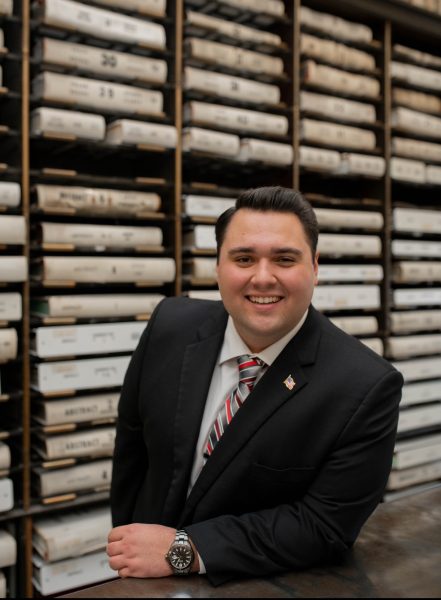The Electoral College: Is It Important?
What is the Electoral College and is it even important?
If you have been in a class that taught American politics, chances are you learned about the Electoral College. Some say it is necessary and useful, others call it an archaic way of holding elections and advocate for reforms.
In 1787, the Constitutional Convention was held, and one of the items discussed was how to elect a president. Some srgued for popular vote to decide who would be president, others wanted Congress to decide who would be president. They eventually came to a compromise, the Electoral College.
For each presidential election year, a group of candidates are nominated by political parties and other groups in each state. However, neither the Constitution nor Federal election laws say that electors have to vote for the political party that nominated them. However, 27 states have made laws of their own that require said electors to vote for that political party. If an event happens where neither opposing party gets the majority in the Electoral College, then the election is given to the U.S. House of Representatives, where the top three contenders face off, each state casting one vote. Then whoever wins the majority of that vote wins the election. However, that is not to say that the votes the people give don’t matter, since their votes decide the candidates for the preferred electors.
There is some controversy with the Electoral College, mainly because of the fact that a candidate can loose the popular vote and yet still win the electoral college vote and vice versa. According to journalist Dave Roos, “Five times in history, presidential candidates have won the popular vote but lost the Electoral College.”
Another point of controversy the Electoral College has gotten is the concept of gerrymandering. According to political author Brain Duignan “Gerrymandering, in U.S. politics, the practice of drawing the boundaries of electoral districts in a way that gives one political party an unfair advantage over its rivals (political or partisan gerrymandering) or that dilutes the voting power of members of ethnic or linguistic minority groups (racial gerrymandering).” Once every decade, the electoral districts of each state is redrawn, determining which people will be represented by each politician. In several states, this means that politicians gather behind computer screens to find out how they can manipulate the lines to box out their competition and maximize the power of their own political party. While some states try to put in safeguards to this by employing independent commissions to draw district lines, most of the states do not do that yet, meaning that partisan gerrymandering still happens.
Gerrymandering tends to affect some states more than others. As New York Times Correspondant Micheal Wines said, “Currently, rigged maps tend to be most prevalent, and most tilted, in states under Republican control. That is in part because Republicans did exceptionally well in the 2010 elections, giving the party far wider control of state legislatures, which oversaw redistricting after the 2010 census.”
Now one might be wondering that if there are problems like this with the Electoral College, then why is it still around?
Each state, no matter the size, has the same number of electors for its two senators. There are also members of the U.S. House of Representatives that are allotted seats porportional to the population of the state. This is done to ensure fair representation for all. The Electoral College essentially makes it so that a few states with bigger populations than others cannot take the majority of the votes.
However, some believe that the problem has swung the other way. The Electoral College tends to favor smaller states, meaning that the votes of a bunch of small states end up outweighing the value of the votes of one or two big states. This has raised the question of whether or not the Electoral College can be trusted.
On occasion, rogue electors who wish to object to the Electoral College outcome proceed to cast their ballot for the candidate that lost the electoral vote in their state but won the overall popular vote. The Supreme Court restricted the power of these rogue electors by ruling that the states require them to support the winner of the popular vote in those states. Rogue electors have to face fines and the possibility of being replaced in 32 states.
The Electoral College is a source of controversy. Whether it be the questionable trustworthiness with the inclusion of rogue electors, the fact that a candidate can win an election despite loosing the popular vote, and the problem of gerrymandering. However, many people still trust in the Electoral College because of how it is meant to make sure all states’ votes matter.
The Electoral College itself is quite important, as it makes sure that the election is not just in the hands of a few heavily populated states, but instead in the hands of the entire country. It has its problems, but the idea itself still has merit. While problems like the unpredictability and gerrymandering are still relevant and should not be ignored, the concept of the Electoral College can be seen as an important one.

Tyler Leach is a 20-year-old from Ironton, Ohio. This is his second year at Shawnee State University, he is going for a major in English/Communications...


